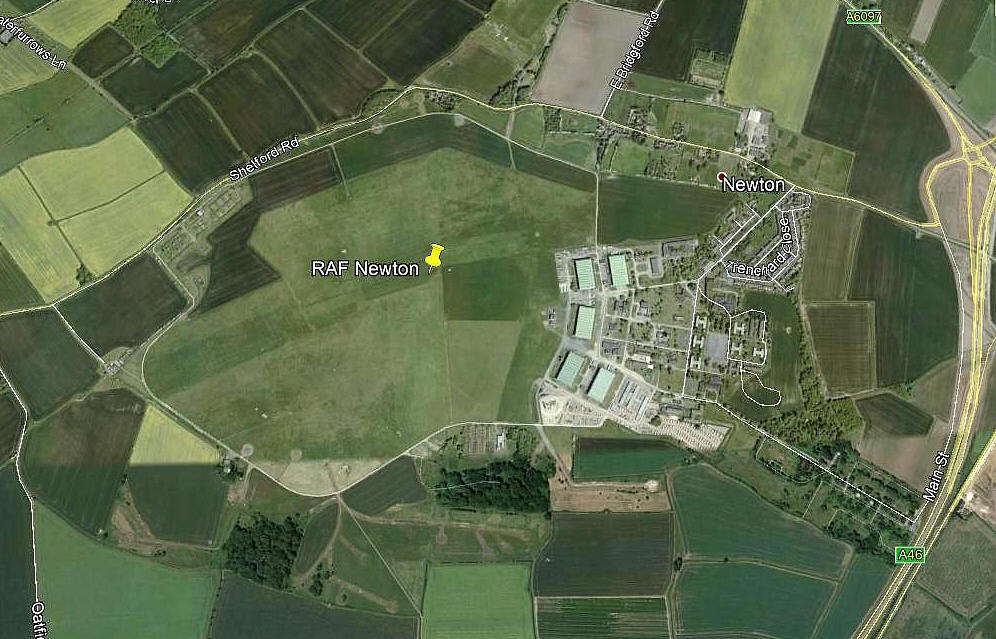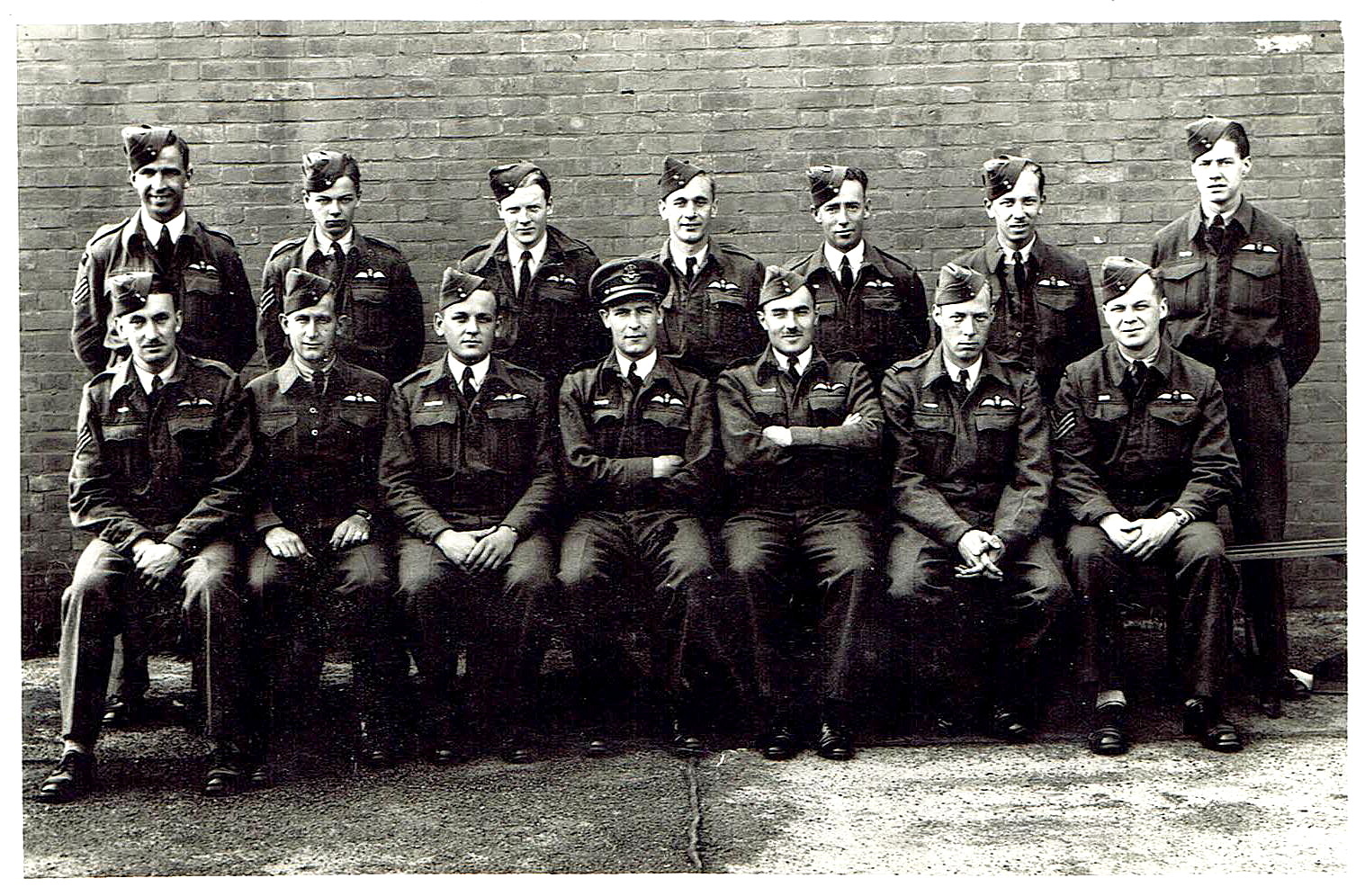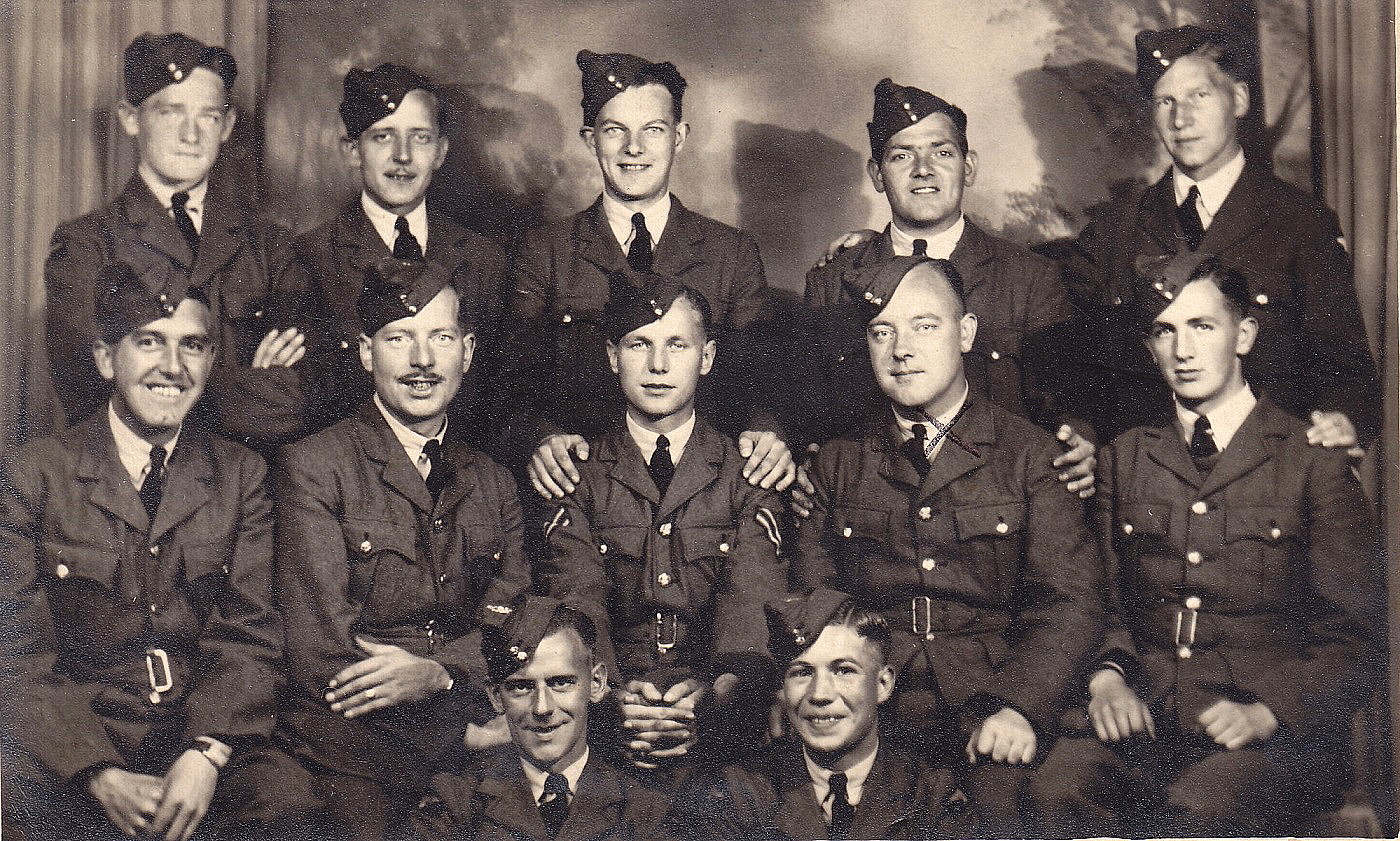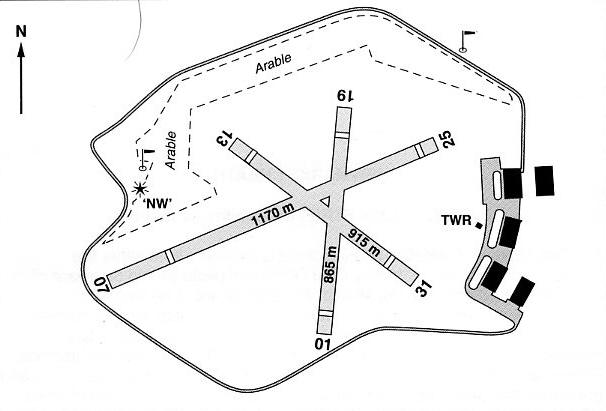Newton
NEWTON: Military aerodrome
Note: This picture (2010) was obtained from Google Earth ©
Military users: WW2: RAF Training Command 21 Group
16 (Polish) SFTS (Airspeed Oxfords, Fairey Battles and Miles Masters). Another source claims North American Harvards were added later on.
1524 BAT Flt (Airspeed Oxfords)
Note: BAT stands for Beam Approach Training - a system used for landing in very poor visibility.
In April 2020 Mrs Tess Walker kindly sent me this picture of the BAT Flight in July 1943. She has been researching the history of Edgar 'Tom' Thomas Abbott, who is seen in the front row, second from right.
In June 2022 I was kindly contacted by Mr Tim Russell who had been researching his 'family tree'. He found these two photos which include his grandfather, John 'Jack' Hodgkinson who served as an engineer with 1524 BAT. Flight at NEWTON during WW2. In the first picture the team are seated in front of one of the Airspeed AS.10 Oxfords. In the second picture he is in the middle row - second from right.
Post 1945: RAF JEFTS
East Midlands UAS (Chipmunks/Bulldogs) 7 AEF (Chipmunks)
2000: Ab intio intensive flight training seven days a week it seems
Gliding: Listed as operating in 1975 & 1990
Location: W of A46, SE of Shelford & NW of Bingham villages, 7nm E of Nottingham
Period of operation: 1937 to today?
Note: This map is reproduced with the kind permission of Pooleys Flight Equipment Ltd. Copyright Robert Pooley 2014.
Runways: WW2: NW/SE 924 grass N/S 942 grass
NE/SW 1189 grass
1990: 13/31 700 grass 01/19 700 grass
07/25 1128 grass
2000: 13/31 915 grass 01/19 865 grass
07/25 1170 grass
NOTES: Typically the history is complicated. For example 16 (Polish) SFTS were based at HUCKNALL and then moved to NEWTON before moving on to TOLLERTON.
The authors of ‘TOLLERTON, an airfield for Nottingham’ make an interesting point: “A Bomber Command conference in March 1940 was cautious about the quality of the new, ex- Polish Air Force pilots. A statement issued after the conference declared that ‘on the whole their flying was safe, but not up to RAF standards. Their navigation was extremely weak, whilst their instrument flying was average. Their night-flying skills were negliable and they had a strongly marked lack of discipline.’ So – in effect, pretty much equivalent to most RAF aircrew when it came to flying ability.
It was such a shame, a scandal really in many ways, that the real combat flying abilities of Polish pilots took so long to be recognised. When this was eventually realised, the effect of the Polish experience was a revolution and completely changed RAF attititudes and methods. To such an extent that it can be easily argued today that without their influence, the 'Battle of Britain' might well have lost!
THE RAF ATTITUDE
Without much doubt RAF aircrew could ‘square-bash’ on the parade ground with much élan, and can we today doubt that these demonstrations must have had the Nazi leaders quaking in their boots?
When I was taught to fly as a civilian, I certainly didn’t have to ‘square-bash’ and even today cannot fathom what purpose it might serve in training military aircrew. I can understand patriotic volunteers wanting to do this for ceremonial purposes, flying the flag and other virtually meaningless gestures. I’m not knocking it, indeed I think we British do pageantry very well indeed, and a spectacle to admire.
We'd love to hear from you, so please scroll down to leave a comment!
Leave a comment ...
Copyright (c) UK Airfield Guide




















